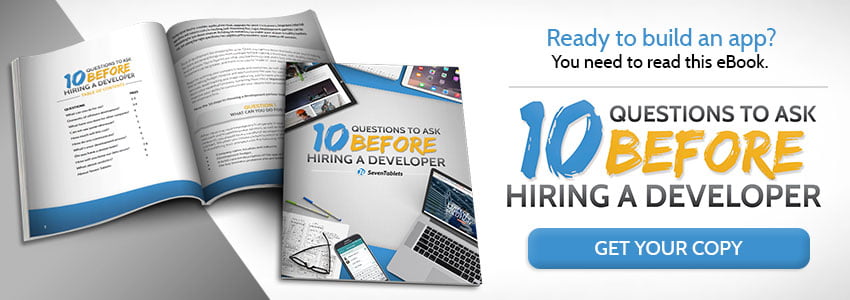What is enterprise software? Such an application or platform should contain functionalities that enhance the lives of the company’s employees and solve problems across the organization. The enterprise software development process is complex because the developer must understand an enterprise’s needs from top to bottom. The software may have tools to improve the role of salespeople, streamline communication, reduce inefficiencies in the finance department and more.
As such, there are a lot of moving parts and the enterprise software development process requires extensive planning. If you’re considering or just beginning an enterprise software project, here are some examples of what to expect.
The Essentials of the Enterprise Software Development Process
An enterprise software application needs to be capable of storing, displaying and manipulating large swathes of complex data. In addition, enterprise software should support or automate business processes that rely on this data. Such apps need to be scalable, robust in terms of functionality and data analysis capabilities, centrally managed and capable of seamlessly interacting with other software and hardware.
Some of the most common features in enterprise applications include the ability to process orders, scheduling capabilities, customer data management and accounting functionalities. The goal of a piece of software will depend on the industry and the unique company, but there are still some constants you can expect when you embark upon the enterprise software development process.
The Design Phase
First, you need to consider your overall strategy and how the app will improve the lives of employees and clients. It’s important to set goals with specific metrics, as this will give you an idea of the impact the app should be having on your business.
For instance, how could a commercial real estate firm improve day-to-day work for their employees? One way to do so would be with an enterprise application that neatly organizes a broker’s clients, complete with scheduling capabilities and alerts that remind the broker to follow up with a client. Remember, you’re looking for ways to improve the lives of your employees with features that are tailored to your industry.
Once you decide on your goals, the software development team can determine the core functionalities of the app or software. Based on this, they will construct a design plan.
The Development Phase
Once you understand what you want the enterprise app to look like, the development phase begins. The developer will write code that meets the requirements for your software, keeping in mind the needs of the users the entire time. After all, since the goal of enterprise software is to streamline work processes for employees, it’s critical that the user experience (UX) is intuitive and seamless. The app should reflect the needs of its users and be easy to use.
Also, be sure the software is as efficient and bug-free as possible. While there will always be room for improvement as industry and market trends shift, you want to be sure everything is running as smoothly as possible.
The Testing and Deployment Phase
The next step is to thoroughly test the enterprise app or software platform with modules that consider all the source code, documentation and interactions within the software. The testing phase should be comprehensive, consisting of multiple tests to really be sure the software is working properly. The app should meet all your goals while providing a smooth, relevant user experience. If it is not performing as desired in any area, you will need to tweak whatever element was not delivering and then test again.
After you’re satisfied with how the software is performing, it’s time to release it. Work with your developer to determine a good deployment timeframe. Once the app is released, it’s important to constantly test and update it in order to continue meeting your business goals and the needs of your users.
Make sure you set deadlines for every step of the enterprise development process, including the design, development and testing. You should also talk with your developer to set a tentative release date for your new mobile app or software platform.
Ultimately, the software needs to satisfy employees in a way that makes everyone’s lives easier and more efficient. Plus, the software development team you choose should be constantly updating the application in order to meet shifting consumer needs, changing company goals and the new products or services.
As such, the developer you choose is an important element of the equation. You will need a team with extensive experience and a good eye for detail. The team at 7T has an experienced team of enterprise software developers on-staff. We work hard to create software that is specifically tailored to meet your unique business goals. In addition, we have experience with many emerging technologies, including augmented reality, virtual reality, artificial intelligence, blockchain and natural language processing.
While 7T has headquarters in Dallas, we also serve clients in Austin, Houston, and beyond. To discuss your enterprise software development project, contact us today.









